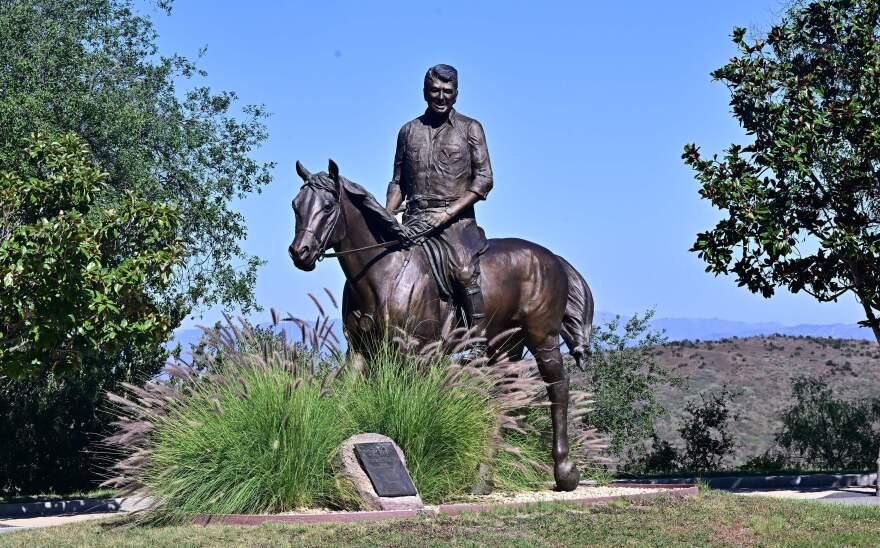Once the conservative leader by which others were measured, former President Ronald Reagan looms large in the Republican Party still today. But his influence – and the issues he championed – may be waning in the age of former President Donald Trump.
You might've heard of him: Ronald Reagan was the 40th president of the United States.
- First elected in 1980, he served two terms from 1981-1989. A classic conservative, he advocated for smaller government, lower taxes and free markets, plus American leadership on the global stage.
- He advocated for "big tent" conservatism, despite being staunchly anti-abortion, saying as governor of California in 1967: "The Republican Party, both in this state and nationally, is a broad party. There is room in our tent for many views; indeed, the divergence of views is one of our strengths."
- Reagan was also a proponent of increasing legal immigration.

What's the big deal? On Wednesday, seven Republican candidates for president will stand on stage at the Ronald Reagan Presidential Library in Simi Valley, Calif., for the second GOP debate, hosted by FOX Business, Univision and Rumble.
- Expect Reagan to feature prominently in name but not necessarily in policy as Republicans have moved further and further away from his values, raising the question of whether the longtime standard-bearer of the party would even have a place in today's GOP.
Want more on politics? Listen to the Consider This episode where we speak to older voters about how important Biden and Trump's ages are.
What are people saying? Reagan isn't invisible and certainly won't be on Wednesday at the library that bears his name. Some candidates invoke his name more than others.
Former Vice President Mike Pence, who has modeled himself as a traditional conservative, mentions Reagan often.
Others bring him up when the issue warrants, like in the face of the ongoing UAW strike against the Big Three automakers.
H.W. Brands, author of Reagan: A Life, summed up the then-and-now nature of Reagan's legacy succinctly:

So, what now? Well, Reagan hasn't been president for more than three decades, so he is very much just a political memory at this point.
- There are parts of the Republican Party still firmly rooted in Reaganism — a strong U.S. military posture and limited federal government chief among them.
- In the age of Trump, though, the party has moved in a more protectionist direction, advocating for tariffs and "America First" foreign policy.
- On Wednesday, though, it's safe to expect the candidates who are on stage at the debate to channel Reagan, even if just for one night only.
Learn more:
- Seven candidates will hit the GOP debate stage as Trump skips the party again
- Mike Pence says Republicans 'face a choice' in 2024: populism or conservatism
- How to watch the second GOP presidential debate
Copyright 2023 NPR. To see more, visit https://www.npr.org.



